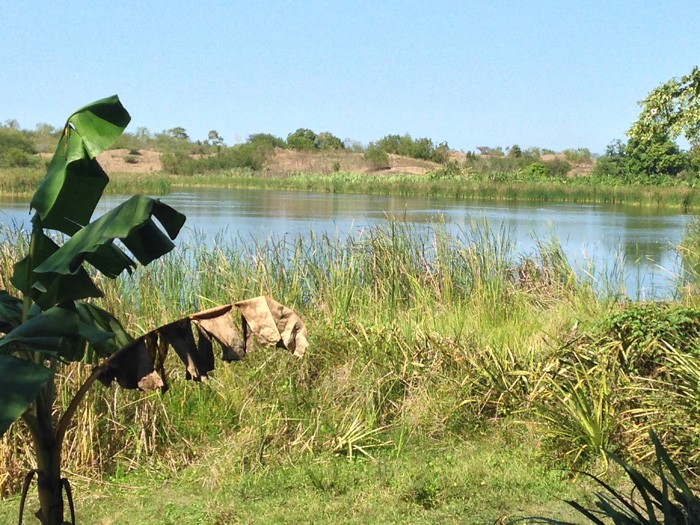
Lake Robino, on the northeast coast of Haiti, is an important water source for USAID’s AVANSE food production project. This $88 million, five-year project will concentrate on improved crop production techniques.
USAID and DAI representatives engaged in the development and implementation of this project, including the Agency’s Global Water Coordinator Christian Holmes, recently visited the Haitian lake.
Lake Robino, about a twenty-minute drive from the Dominican Republic, is a four-hectare lake with depth ranges of approximately six to twelve feet per year depending on the season. The lake will provide water to AVANSE’s rice production project, which covers approximately 1,000 hectares. Rice is one the five crops targeted by the project, including cacao, corn, beans, and plantains.
The Government of Haiti Ministry of Agriculture and the Food and Agriculture Organization of the United Nations (FAO) have focused on Lake Robino's maintenance along with water connections to AVANSE-supported irrigated areas.
AVANSE will employ innovative production techniques, such as system of rice intensification (SRI), which uses less water than traditional rice production systems. Unlike more traditional techniques where farmers flood rice fields to control weeds and pests, SRI reduces flooding and farmers are responsible for removing weeds. While this is more labor intensive, it reduces the stress to the rice and productivity doubles.
This rice project is an important component of AVANSE's goal to double the income of 40,000 farmers in Haiti’s north and northeast plains and mountain areas.







Comment
Make a general inquiry or suggest an improvement.